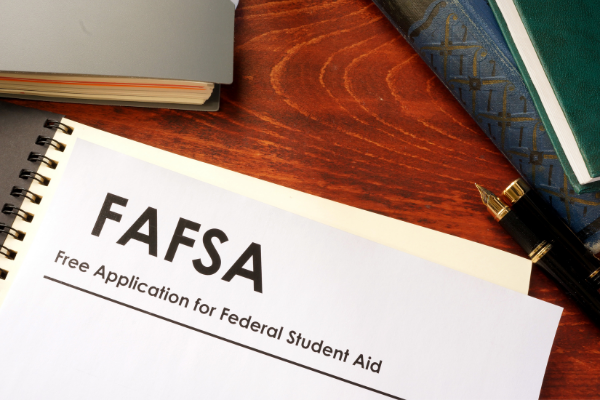Transcript of Video:
Hi, everybody, Matt Carpenter checking in here, I want to take a few minutes to talk about some pretty sweeping changes that the Department of Education released. Over the last couple of days, we’ve spent the holidays, really going through this with a fine tooth comb and had a decent summary. And the first thing I want to do is, I want to implore to Congress and the Department of Education, I want to beg even, to include us in these conversations. Because it’s clear to me and to us that there’s not a great level of understanding of what some of these changes are actually going to do, to a ton of families, in a negative way. That things are really going to negatively impact families that currently have a student in college and/or are about to in the coming years.
Now, there’s some people that are gonna win here as well. And we’ll talk about both. But again, I’m throwing our expertise out there, and am going to walk you through what actually happens in practice to a lot of families once these changes go into place. I mean that sincerely, because I know that this was not done with any type of malicious thinking. Everybody’s just trying to make this tough system better. But, we’ve got to be better than this.
From a high level, I put these changes into three categories. There’s the who cares category, and then there’s some wins, and there’s some losses in the lump sum summary at the end.
The who cares?
Well, there’s this name change. We talked about this EFC expected family contribution, expected family contribution, well, that’s got a short shelf life, January 1, 2022. That is going to be the SAI, Student Aid index, the hope being it clears up some confusion, it’ll clear up a little bit, not everything. income protection allowance goes up about 35%. That sounds kind of good, right? Again, who cares? Doesn’t matter, that only means we’re gonna have about $9,000 less of income included in the overall formula, that might sound like a big number, it’s not at all. It will have a negligible impact for most families going through this. Then finally appeals up, you know, right now, technically, colleges cannot include any type of appeals or professional judgments. Now, colleges are required to at least hear them, will they bend or not, or make any change? Probably not. So again, that’s going to go in the who cares category.
The Winners
Let’s talk about some wins. One nice win here is that child support currently is treated as untaxed income, which can have a really big swing on what a family is expected to pay for college. Now EFC, soon to be the SAI, was treated as untaxed income, it’s going to be treated as an asset. In short, that just means it’s going to lower what a family is going to be expected to pay that is a win. Things like workman’s comp, veterans benefit, other untaxed income, this was counted. These untaxed events were treated as untaxed income within the formula, which negatively impacted a family’s eligibility for financial aid. Again, that’s being wiped off. Those things will not count against families moving forward. So families that fit into that category, that’s a win.
It’s becoming more user friendly. You know, this is great, especially for the families that are really overwhelmed with this process; which tends to be the those that suffer most statistically, in this financial aid process overall, are the low income families. You know, families that might be first generation immigrants, it’s a confusing and overwhelming process. The FAFSA was over 100 questions and going down to about 35. Again, that’s a huge win. That’s why I applaud these changes, the most, the families that need the most help, are getting the most help. Now I feel that they, the federal government, was already doing a pretty good job. Our system was already doing a pretty good job taking care of very low income families, in the sense that they were being given a lot of help, but still have a tough time navigating this process. We want to continue to do everything we can to help these folks. And we are doing that even a better job of it within us.
The Losers
Here’s who’s really gonna get hurt here. The biggest one, right now, the biggest impact that will effect most families negatively is if you have two kids in college at once, currently you get a significant discount, as you should, that’s being wiped off. Essentially, if colleges said you had an expected family contribution of $40,000, but you had two kids in school at once $20,000 and $20,000 would get divided evenly among the two, as it should be. That’s going away. So when that hypothetical amounts, $40,000 plus $40,000, it’s $80,000 a year for that particular family. And again, that doesn’t just mean a wealthy family. Those families who are two parents that have two kids and they are a nurse and a firefighter. They’re gonna have a really, really tough time.
Two household families currently the FAFSA is completed by the custodial parent or parents. Now, the parent that provides the most financial support is to complete the FAFSA. Which is going to give them a higher EFC and make them eligible for less financial aid. Even if it’s a scenario where let’s say we have a parent, that’s not the biological parent, and they don’t have a good relationship with the custodial parent and they make more money, they now complete the FAFSA, the student gets less financial aid, but the parent who gives the most financial support, they have no obligation to pay anything towards college. There’s a lot of families that are going to fit into that category. I’m really, really concerned with those families.
One of the no change items here, and a big problem within this whole formula, is there’s no asset protection allowance or it is so small that it’s negligible. In other words, any money that a family has that’s not in retirement, Colleges, according to this formula, think it’s fair game. I was hoping for a change there and there was none, it stayed the same. So it basically means any type of money or savings that we have, they’re going to be included in the formula.
So what’s it all mean in summary? Well, in short, if we’re a low income family, and the another way that we look at them is that they are Pell eligible, that’s a big victory here. Again, I applaud the efforts. I applaud the execution, as it should be. That’s a huge win. But two household families, okay, most of those families, if they are divorced, or separated household, that’s going to be a loss. The middle class family that has multiple siblings, huge loss here as well. I don’t think there was any malicious intentions, but those are are the ramifications. We’re going to have some families that get the rug pulled out from underneath them. So again, Congress, Department of Education, the decision makers, please lean on us. It’s clear to me, there’s not a complete understanding of what the fallout is going to be, and some of these are pretty significant changes. Thank you.




